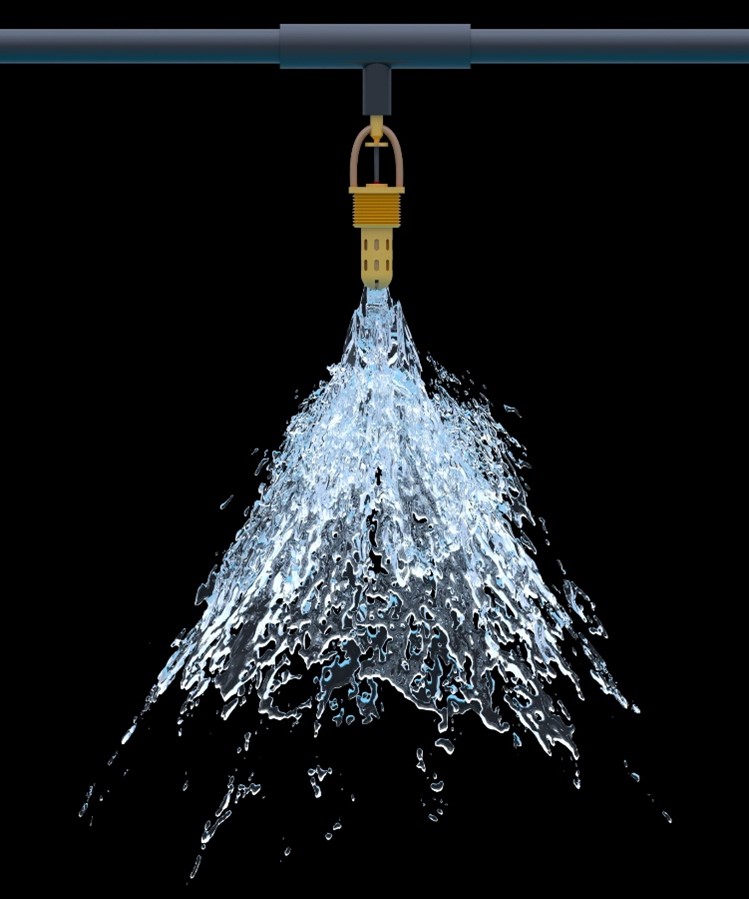Who needs the World Wrestling Federation when you have the World Wrestling Crustaceans.
Devin Doyle of Newport Beach is an executive-level business leader, serving as the owner and president of Response Fire Supply. Under his leadership, the Santa Ana company expanded to five locations. In the following article, Devin Doyle outlines some of the main regulations and resources commercial business owners in California should review to fend off risks of fires, and fines.
Weeding through codes, rules, and regulations isn’t most people’s idea of fun, but then again, neither is watching their business go up in flames or being held liable for a preventable fire.
In order to pass regular fire code inspections, avoid noncompliance fines, and ensure the safety of their employees, customers, and property, commercial building owners in California must be aware of all fire regulations applicable to their building, which will depend on factors such as their county, surroundings, weather patterns, building size, and business type.
Devin Doyle Explains Where to Find Fire Codes
As is the case in many situations involving health and safety, fire codes exist at several different levels of regulation, ranging from broad
international codes to increasingly specific national, state, county, and municipal guidelines. While these sets of policies work toward the common goal of safety, several factors play into how stringent the rules in a given location should be.
After all, it makes sense that commercial buildings in locations where fires are more common might require additional precautions or more frequent inspections than a district where fires occur less frequently.
Devin Doyle of Newport Beach says that another important factor to consider is the type of business conducted in the commercial building and whether any of the relevant materials or procedures might increase hazard risks. The California Fire Code provides specific regulations for everything from “Motor Fuel Dispensing Facilities and Repair Garages” to “Storage of Distilled Spirits and Wines.”
Figuring out which regulations to follow might require some research, but it is always better to err on the side of caution, especially in situations involving fire.
Fire Safety Equipment and Procedures
Devin Doyle of Newport Beach notes that two of the most obvious and important pieces of detection equipment required to meet fire regulation standards are fire alarms and smoke alarms, both of which should be tested regularly to ensure that they are functional and can be heard throughout the building.
Automatic fire alarms will sound in response to a detected temperature that exceeds a pre-programmed limit, whereas manual alarms are activated by hand via a lever, bar, or button. Manual alarms within a commercial building should be easy for employees and customers to locate in case of an emergency and should ring throughout the entire building, explains Devin Doyle of Newport Beach.
Like automatic fire alarms, smoke alarms are programmed to respond to dangerous environmental conditions, in this case the chemical components of noxious smoke. Both types of alarms should be tested regularly to ensure their proper functioning.
Devin Doyle of Newport Beach says that depending on the size of the commercial building, business owners may also need to install and maintain additional fire protection equipment, such as fire sprinklers, which are required when a business houses hazardous materials as defined by the National Fire Protection Association (NFPA). Buildings with multiple stories may also require a standpipe system.
All buildings, with the exception of single-family homes, are required to have fire extinguishers, though their number, type, and location will vary based on the purpose and maximum occupancy of the building. For more information about the different pieces of equipment and what they do, check out this
glossary
of fire safety terms.
 Common Policy Violations and Repercussions
Common Policy Violations and Repercussions
Devin Doyle of Newport Beach says that while specific regulations may vary widely, some of the main reasons that commercial buildings fail fire safety inspections include:
- Obstructed exits
- Malfunctioning emergency signals
- Malfunctioning fire fighting equipment
- Neglecting to perform and document regular equipment maintenance
- Extension cords being used for permanent, rather than temporary, purposes
- Hazardous materials being stored incorrectly
The standards of inspection, fees to file for inspection or reinspection, and fines issued for violations will vary by county.
Creating Company-Wide Fire Safety Procedures
If all these rules and regulations seem overwhelming at first, it may be helpful to conduct an initial risk assessment to determine any potential sources of danger before diving too deep into the policy specifics. While performing this personal inspection, business owners should also map out evacuation routes and begin considering the best places to locate fire equipment.
Once familiar with the building layout, business owners should turn to their county’s guidelines regarding what detection and fire response systems must be installed and where. They should also signpost emergency exit routes to ensure that they are clearly visible and easy to understand.
Devin Doyle of Newport Beach explains that business owners should also train employees on how to evacuate and, if applicable, how to guide clients or customers to do the same. Safety training should also emphasize the need to keep escape routes unobstructed at all times.
As even the best safety procedures cannot provide guaranteed protection against fire - business owners should also back up all important documents and data and explore options for commercial property insurance against fire damage.
Conclusion
Given the frequency of fires during the Californian summers, fire codes are not something to be taken lightly. To avoid failing fire inspections and promote the safety of all involved in their commercial operations, business owners must pay close attention to all fire safety rules and regulations, which will vary according to their particular circumstances.
Though disasters often seem unlikely and no one wants to imagine having to face these crisis situations, protection policies exist for good reason and can prove life-saving in moments of crisis.
 Common Policy Violations and Repercussions
Common Policy Violations and Repercussions